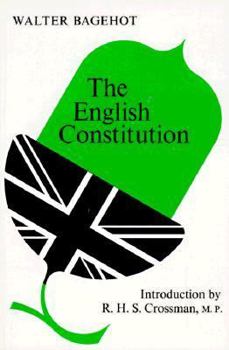The English Constitution
(Part of the Cambridge Texts in the History of Political Thought Series)
Select Format
Select Condition 
Book Overview
Walter Bagehot was one of the great political journalists of his--or indeed of any--age. Woodrow Wilson called his approach a "fresh and original method which has made the British system much ore intelligible to ordinary men than it was before."For anyone who wants to understand the workings of British politics, this book, written in 1867, is still the best introduction available. It is a study of the classical period of Cabinet government before the extension of the suffrage, the creation of the party machines, and the emergence of an independent Civil Service administering a vast welfare state.A thoughtful and provocative introduction by R. H. S. Crossman, M.P., gives biographical material on Bagehot, compares his political philosophy with those of his contemporaries, and contrasts Britain's parliamentary government today with that of the last century.





